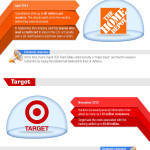Guide to Doing Keyword Research for Affiliate Websites
How did you get this article? Simple; you typed certain few words, and the search engine answered back with a list of possible posts you should find relevant. You then chose this one. Thank you for the gesture. Anyway, the words you typed into the search engine (Google, Bing, Yahoo, etc.) are called keywords.
Websites compete to attract web searchers like you to their sites, and one way to achieve that is to use words or phrases that you are likely to type into the search engine as you look for information on a given topic. The art of figuring out the keywords a potential information-seeker is likely to use is no mean task. It has gradually become an industry, known as keyword research, with many software, books, tools, and experts to boot.
In short, keyword research is a process by which you, as a blogger or website writer, research keywords or phrases that the would-be audience is most likely to enter into search engines, such as Bing or Google, as they look for your services or products.
According to Yoast, Keyword research is the first step that enables you to optimize your website for certain keywords. In whichever niche or industry you are in, there are already giants who have already made good use of keyword research to rank top on page one of any search engine’s Search Engine Result Pages (SERPs).
Where Most People Go Wrong
Most online content creators do not take the time to do keyword research properly. They write articles, then look glossily look for some keywords they consider relevant, which they then sprinkle in the report. It doesn’t matter that the keywords are weather-beaten.
Another mistake is to pump in many low competition keywords between affiliate links because you heard low competition keywords is the new path to a high ranking. It is undoubtedly true, only never lose sight of why you want to rank in the first place.
You need traffic, yes, but you only benefit if the high traffic translates into many clicks that convert into revenue. It would be best if you were strategic when it comes to placing keywords. It is an art; you need to understand the search intent to attract the right traffic.
For instance, a seeker looking for “best herbal soap” is no doubt interested in an herbal soap, but he/she first wants to compare the available options before selecting which to go for. Such a person will eventually click your affiliate link to place an order.
However, someone who types “what is herbal soap” is possibly not buying anytime soon. He/she is after information. So keywords come in different categories; choose what can speedily translate into money.
There are four main categories of affiliate keywords you should target:
- General Comparisons
- Product Reviews
- Branded Comparisons
- T and A keywords
General comparison
In this category, your work is to compare and contrast different products, highlighting their pros and cons and letting the searcher decide which suits him. You first have to gather some products that are worth recommending, then review each.
Most general comparison keywords take the format of “best XXX,” for instance “best small camera bulbs,” or “best herbal kinds of toothpaste.” You can be more specific, depending on the particular audience you are after.
If your niche is Home Improvement, for instance, you can use “best small camera bulbs for your home.” You will get more relevant traffic, but note that such specific keywords or posts tend to generate low website authority while broader, more open posts rank high in authority. You can still earn even with the low ranking if the competition stiff for that niche.
Product Reviews
A product review targets a searcher who has narrowed down to the product he wishes to purchase but still wants to learn the finer details about it before committing his money. Your keywords should promise him these details. For instance, “What is unique about hedge trimmer X?”.
Product reviews are a staple for affiliate sites because they are mostly after searchers who are very close to placing an order. If you are into product reviews, you need to select products that are selling. Please do not make it your business to introduce new, unknown products. You are not an advertiser, but an explainer.
Brand names sell better, so just learn more about the product, assess the ranking difficulty, and get the right keywords.
Branded Comparisons
With branded comparisons, you target a searcher who has checked general comparison, decided on two almost similar products, and now want to choose one.
Here is an example:
TP-Link AC1200 vs TP-Link AC1750
This is like a boxing ring. Each of them is possibly efficient and able to perform well, but then there have to be some differences, no matter how minor. You have to point out these differences because the searcher’s final decision depends on that. Of course, you will also have to dwell on the similarities.
Remember that your aim is not to discredit one over the other but to highlight their strength and weaknesses. One wifi router may have a broader radius coverage but can only connect up to 100 users, while the other has a short-range but connects up to 200 users. The searcher can then decide what will serve his particular needs best.
Trust and Authority keywords
Now, your site should not come across as something that is looking to promote products. It would help if you also aimed to educate and inform with no strings attached. Okay, with no strings openly attached. Some of your articles should have no commercial language traces like “check price on Amazon” or “you can as well try this other.”
You should follow what memphis seo experts say – Your customers will trust you more if you take the time to educate them. You should answer their questions well, going out of your way to demonstrate why, for instance, such and such a beauty product is not fit for people with this and that allergies.
Again, by showing that you understand your niche well, a search engine like Google learns to trust you, so your website authority soon ranks higher. How informative your posts are will determine how many backlinks you get.
You need to find the right Trust and Authority keywords (T&A keywords) and create well-balanced, precise, non-commercial, and informative content with them.
Wrap Up
Keyword research is just like any other regular business out there in the streets. The people you aim to attract with your keywords are the same people you see on the roads or parks.
They mostly buy from stores that are easy to locate and access. If your store is the best, but with a blurred signboard hidden in the backstreet, many of them won’t see your store fast enough. In online affiliate marketing, it is the keywords that expose you to the customers.
You have to use the same street tricks to get customers’ attention to connect with them, but that’s not all. You then have to subtly convince them to purchase whatever you have on offer. If your products look inferior or not convincing enough, they buy from your next-door competitor.
Looking for a Local SEO tool?
You’re probably keen on starting local SEO after reading this article. Try out tools like Grid My Business which is a local rank tracking and monitoring tool to get started on your local SEO journey.

















